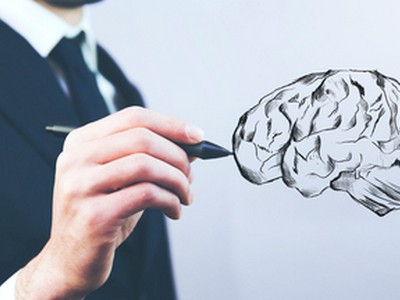
Depression Tips Psychologist Mermaid Beach (07) 5539 9798
Depression Psychologist Mermaid Beach

Introduction: Severe Depression Psychologist Mermaid Beach Near Me
Anxiety and anxiety are two of the most typical mental health disorders that individuals deal with today. While they might seem like different conditions, they are frequently interconnected and can have a considerable impact on a person's overall well-being. In this short article, we will check out the connection in between anxiety and anxiety, the signs connected with each condition, and what actions people can take to handle and conquer these challenges.
Understanding Anxiety and Depression
What is Anxiety?
Anxiety is a natural reaction to tension or risk. It is defined by sensations of unease, concern, and fear about everyday situations. While it is normal to experience anxiety from time to time, persistent anxiety can hinder day-to-day activities and impact one's quality of life.
What is Depression?
Depression, on the other hand, is a state of mind disorder that impacts how you feel, think, and deal with everyday activities. It goes beyond typical sensations of unhappiness or sorrow and can persist for weeks, months, Signs Symptoms Of Depression Psychologist Mermaid Beach or even years. Depression can make it difficult to function in different areas of life, including work, relationships, and self-care.
The Connection Between Stress And Anxiety and Depression
Anxiety and anxiety often work together. Many people who experience anxiety also battle with symptoms of depression, and vice versa. The link between the 2 conditions can be credited to a number of aspects:
Chemical Imbalance: Both anxiety and anxiety are thought to involve an imbalance of neurotransmitters in the brain, such as serotonin and dopamine.
Shared Genetic Elements: Research suggests that there may be a genetic predisposition for developing both stress and anxiety and depression.
Stressful Life Events: Traumatic experiences or substantial life occasions can activate both stress and anxiety and anxiety symptoms.
Negative Thinking Patterns: People with stress and anxiety tend to have negative thoughts and worry exceedingly about future events. These thought patterns can contribute to the development of depression.
Physical Signs: Anxiety and anxiety can manifest with similar physical symptoms, such as fatigue, sleep disruptions, and modifications in appetite.
Symptoms of Anxiety
Anxiety can manifest in different methods and may provide various signs in each individual. Some typical signs of stress and anxiety include:
Excessive Concern: Consistent and excessive worrying about everyday scenarios, even when there is no evident reason for concern.
Restlessness: Feeling on edge or not able to unwind, typically accompanied by physical symptoms like trembling or fidgeting.
Difficulty Concentrating: Difficulty focusing or staying present due to racing ideas or preoccupation with worry.
Irritability: Feeling easily upset or upset, in some cases without a clear cause.
Sleep Disruptions: Sleeping disorders or uneasy sleep due to racing ideas or worries.
Physical Symptoms: Anxiety can also manifest physically, causing signs such as quick heart beat, shortness of breath, dizziness, or intestinal issues.
Symptoms of Depression
Depression can differ in intensity and discussion from individual to person. Some common signs of anxiety consist of:
Persistent Unhappiness: Feeling unfortunate, empty, or hopeless for an extended period, frequently accompanied by tearfulness.
Loss of Interest: Losing interest in activities once taken pleasure in and experiencing a lack of motivation.
Changes in Appetite: Substantial weight-loss or gain due to changes in appetite or consuming habits.
Fatigue: Feeling exhausted and lacking energy, even after getting enough sleep.
Difficulty Focusing: Problem focusing, making choices, or remembering details.
Suicidal Thoughts: In serious cases, anxiety can lead to ideas of self-harm or suicide. It is important to seek assistance if you experience these thoughts.
How to Manage Anxiety and Depression
Managing stress and anxiety and anxiety needs an extensive technique that resolves both the physical and emotional elements of these conditions. Here are some techniques that can assist:
Seek Expert Assistance: Speak with a mental health professional, such as an anxiety psychologist in Surfers Paradise, who can supply an accurate medical diagnosis and develop a personalized treatment plan.
Medication: In many cases, medication may be recommended to help manage symptoms of stress and anxiety and depression. A qualified healthcare provider can figure out if medication is necessary.
Therapy: Cognitive-behavioral therapy (CBT) and other evidence-based treatments can help individuals identify negative thought patterns, develop coping mechanisms, and enhance overall well-being.
Self-Care: Take part in activities that promote self-care, such as regular workout, practicing relaxation techniques (e.g., deep breathing or meditation), guaranteeing appropriate sleep, and keeping a balanced diet.
Social Support: Reach out to buddies, family, or support system who can provide understanding and support during difficult times.
Avoid Substance Abuse: Drug abuse can get worse signs of anxiety and depression. It is important to prevent self-medicating with drugs or alcohol.
Frequently Asked Questions
- Anxiety is characterized by extreme worry and fear about everyday situations, while depression includes persistent feelings of unhappiness or despondence that impact everyday functioning.
- Yes, stress and anxiety is considered a mental illness when it hinders daily life and triggers considerable distress.
- Signs of depression in males may include irritation, anger or aggression, increased risk-taking behavior, substance abuse, or physical symptoms like headaches or gastrointestinal issues.
- While there is no definitive cure for stress and anxiety and depression, they can be effectively handled and treated with the right combination of treatment, medication, and self-care strategies.
- Yes, anxiety is a mental illness defined by consistent sensations of sadness, despondence, and a loss of interest in activities as soon as enjoyed.
- Offer assistance and motivation, listen without judgment, and encourage them to seek professional assistance. Inform yourself about their conditions to much better understand their experiences.
Conclusion
Anxiety and depression are complex conditions that typically exist side-by-side and can significantly affect a person's well-being. Comprehending the connection between these two disorders is essential for effective treatment and management. By seeking expert assistance, practicing self-care, and developing a strong support group, people can take actions towards overcoming anxiety and depression and restoring control over their lives. Remember that you are not alone in this journey, and there is wish for a brighter future.
Major Depressive Disorder With Anxious Distress Psychologist Mermaid Beach
What Causes Depression In The Brain Psychologist Mermaid Beach Near Me
Isabella Whittingham Registered Psychologist Gold Coast
Surfers Paradise Chiropractic Centre-Dr. Bruce Whittingham
12 Thomas Drive, Surfers Paradise QLD 4217
(07) 5539 9798
https://surfersparadisechiropractic.com.au
Difference Between Anxiety And Depression Psychologist Mermaid Beach Near Me